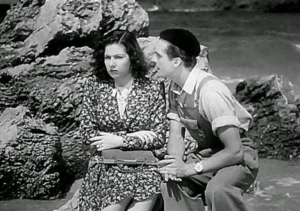During the Spanish Civil War, ‘Nationalist’ women raped by Republican forces were held up as martyrs, and a similar commemorative process took place on the Republican side. Current historical scholarship on sexual violence in modern Spain has tended to focus on rape as a weapon of war during the Civil War. The proposed project will revise such emphasis on wartime rape within the historiography on modern Spain, and will explore the influence of Francoism’s National Catholicism on the policing of sexual violence in peacetime.
In order to do so, this project constitutes a historical study of ‘dishonest abuses’ (abusos deshonestos). ‘Dishonest abuses’ was a legal term used under the Francoist regime to refer to a broad spectrum of criminalised sexual acts, ranging from rape to child abuse and homosexuality. Indeed, most historical scholarship on this legal category has explored its role in the persecution of gay men, whose sexual preferences contravened the Francoist regime’s pronatalism. Nonetheless, the 1944 Penal Code’s section on abusos deshonestos dedicated considerable space to sexual crimes against women, and defined ‘rape’ as ‘carnal relations’ with a woman using ‘force or intimidation’, ‘when the woman finds herself deprived of reason or sense for whatever reason’. Similar to contemporaneous sexual assault legislation in the UK, forced sexual intercourse only constituted rape if a woman was physically or mentally indisposed to prevent it. What remains unclear in the Francoist case is the role of medical specialists in assessing the mental and physical capabilities of both victim and perpetrator.

Given the strong influence of National Catholicism on discourses surrounding sex, virginity, and marriage, the case of Francoist Spain has much to contribute to current historiography on sexual violence. This project will test the impact of socio-political context on peacetime experiences of sexual abuse, through an exploration of how Franco’s dictatorship affected the authority of the police surgeon and forensic psychiatrist, particularly within the politically repressive context of the 1940s. These lines of inquiry will elucidate the hierarchies that existed between scientific and testimonial evidence within Spanish rape cases under Francoism, thereby offering an innovative perspective on sexual violence in the modern world.
RESOURCES:
Dr Stephanie Wright Research Leaflet